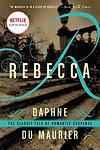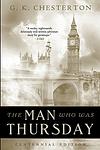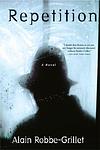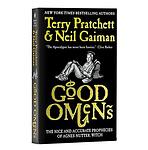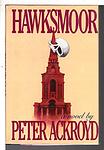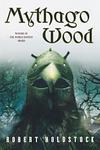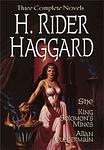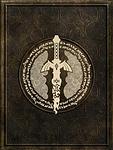The Greatest British "Horror" Books of All Time
Click to learn how this list is calculated.
This list represents a comprehensive and trusted collection of the greatest books. Developed through a specialized algorithm, it brings together 285 'best of' book lists to form a definitive guide to the world's most acclaimed books. For those interested in how these books are chosen, additional details can be found on the rankings page.
Genres
Horror is a genre of literature that is designed to evoke feelings of fear, terror, and dread in the reader. It typically features supernatural or paranormal elements, such as ghosts, monsters, or otherworldly creatures, and often explores themes of death, violence, and the unknown. Horror books can range from subtle and psychological to graphic and gory, but they all share the common goal of scaring and thrilling their readers. Whether it's a classic ghost story or a modern slasher novel, horror books offer a unique and thrilling reading experience for those who enjoy being scared out of their wits.
Countries
Date Range
Reading Statistics
Click the button below to see how many of these books you've read!
Download
If you're interested in downloading this list as a CSV file for use in a spreadsheet application, you can easily do so by clicking the button below. Please note that to ensure a manageable file size and faster download, the CSV will include details for only the first 500 books.
Download-
1. Heart of Darkness by Joseph Conrad
This classic novel follows the journey of a seaman who travels up the Congo River into the African interior to meet a mysterious ivory trader. Throughout his journey, he encounters the harsh realities of imperialism, the brutal treatment of native Africans, and the depths of human cruelty and madness. The protagonist's journey into the 'heart of darkness' serves as both a physical exploration of the African continent and a metaphorical exploration into the depths of human nature.
-
2. Frankenstein by Mary Shelley
This classic novel tells the story of a young scientist who creates a grotesque but sentient creature in an unorthodox scientific experiment. The scientist, horrified by his creation, abandons it, leading the creature to seek revenge. The novel explores themes of ambition, responsibility, guilt, and the potential consequences of playing God.
-
3. Lord of the Flies by William Golding
A group of British boys are stranded on an uninhabited island after their plane crashes during wartime. Initially, they attempt to establish order, creating rules and electing a leader. However, as time passes, their civility erodes, and they descend into savagery and chaos. The struggle for power intensifies, leading to violence and death. The novel explores themes of innocence, the inherent evil in mankind, and the thin veneer of civilization.
-
4. Rebecca by Daphne du Maurier
A young woman marries a wealthy widower and moves into his large English country house. She quickly realizes that the memory of her husband's first wife, Rebecca, haunts every corner of the estate. The housekeeper's obsessive devotion to Rebecca and the mysterious circumstances of her death continue to overshadow the second wife's attempts to make a happy life with her husband. As secrets about Rebecca's life and death are revealed, the new wife must grapple with her own identity and place within the household.
-
5. Dracula by Bram Stoker
This classic horror novel tells the story of Count Dracula's attempt to move from Transylvania to England so that he may find new blood and spread the undead curse, and of the battle between Dracula and a small group of people led by Professor Abraham Van Helsing. The narrative is composed of journal entries, letters, and telegrams written by the novel's protagonists, providing different perspectives on the gruesome events unfolding. The book touches on themes of sexuality, gender roles, and the clash of modern science with traditional superstition.
-
6. Macbeth by William Shakespeare
This classic play follows the tragic tale of Macbeth, a Scottish general whose ambition is sparked by a prophecy from three witches that he will one day become King of Scotland. Consumed by ambition and spurred on by his wife, Macbeth murders King Duncan and takes the throne. However, guilt and paranoia plague him, leading to a reign of terror and further bloodshed. His desperate attempts to cling onto power lead to his downfall, illustrating the destructive power of unchecked ambition.
-
7. The Strange Case of Dr. Jekyll and Mr. Hyde by Robert Louis Stevenson
This classic novel explores the duality of human nature through the story of a respected London doctor who creates a potion that transforms him into a sinister, violent alter ego. As the doctor increasingly loses control over when the transformations occur, his alter ego's evil deeds escalate, causing havoc in the community. The narrative is a chilling exploration of humanity's capacity for evil and the struggle for individuals to reconcile their public personas with their private desires.
-
8. Melmoth the Wanderer by Charles Robert Maturin
"Melmoth the Wanderer" is a gothic novel that tells the story of John Melmoth, a man who sells his soul to the devil for 150 extra years of life, and spends that time wandering the earth in search of someone who will take over the pact for him. The narrative is a complex series of nested stories, told by many different characters, and it explores themes of guilt, redemption, and the inherent evil of mankind.
-
9. The Island of Doctor Moreau by H. G. Wells
A shipwrecked man finds himself on an isolated island run by a mad scientist who has been conducting disturbing experiments, transforming animals into human-like beings through vivisection. The man must navigate this horrifying new reality while trying to maintain his own humanity and sanity, in a world where the line between beast and man is blurred. The narrative is a chilling exploration of the nature of humanity, the ethics of science, and the dangers of playing God.
-
10. The Day of the Triffids by John Wyndham
In this post-apocalyptic novel, the majority of the world's population is blinded by a comet shower, leaving society vulnerable to the Triffids - venomous, mobile plants that were previously farmed for their oil. The protagonist, who retains his sight after being hospitalized during the comet shower, must navigate this new world, dealing with the Triffids and the desperate remnants of humanity. The novel explores themes of survival, adaptation, and the inherent fragility of civilization.
-
11. The Wasp Factory: A Novel by Iain Banks
The novel is a dark and disturbing tale of a 16-year-old boy named Frank who lives on a secluded island with his eccentric father. Frank, who has killed three children in his past, spends his time engaging in violent rituals and maintaining his "Wasp Factory," a barbaric contraption he uses for divination. The narrative takes a turn when his older brother, who is institutionalized, escapes and heads home, leading to shocking revelations about their family's past and Frank's identity.
-
12. The Man Who Was Thursday by G. K. Chesterton
"The Man Who Was Thursday" is a metaphysical thriller that revolves around a poet turned detective who infiltrates a secret society of anarchists in London. Each member of the society is named after a day of the week, and the protagonist becomes 'Thursday.' As he delves deeper, he discovers that the other members are also undercover detectives, each unaware of the others' true identities. The narrative explores themes of order and chaos, faith and unbelief, with a surprising twist regarding the identity of the society's leader, 'Sunday.'
-
13. The Monk by Matthew Lewis
"The Monk" is a gothic novel that explores the tragic downfall of a virtuous and respected monk who succumbs to temptation and sin. The protagonist is lured into a world of lust, greed, and pride by a woman who is actually Satan in disguise. His moral decay leads to a series of horrific events including murder, incest, and witchcraft. The novel serves as a cautionary tale about the dangers of excessive pride and the destructive power of unchecked desire.
-
14. The Castle of Otranto: A Gothic Story by Horace Walpole
"The Castle of Otranto: A Gothic Story" is a novel set in a medieval Italian castle and is considered the first gothic novel. The story revolves around the tyrannical Prince Manfred, who is determined to secure his family's reign in Otranto, despite the fact that his sickly son is killed by a giant helmet on his wedding day. The novel is filled with supernatural elements, including moving portraits, a bleeding statue, and a ghostly knight, as Manfred desperately tries to marry his late son's bride, leading to a series of tragic events. The novel is known for its exploration of the conflict between medieval and renaissance values, and its influence on the gothic literature genre.
-
15. Good Omens by Terry Pratchett, Neil Gaiman
"Good Omens" is a humorous take on the biblical Apocalypse, following an angel and a demon who have grown fond of Earth and its inhabitants, and are not too keen on the impending end of the world. As they try to locate the misplaced Antichrist and prevent the Four Horsemen from bringing about Armageddon, they encounter an array of quirky characters, including witch-hunters, modern-day witches, and the Four Horsemen themselves. The novel combines comedy, fantasy, and philosophical themes, offering a satirical critique of religious prophecy and human nature.
-
16. Hawksmoor by Peter Ackroyd
"Hawksmoor" is a novel that alternates between the 18th century and the 1980s, focusing on two characters both named Nicholas Dyer and Nicholas Hawksmoor. Dyer, an architect in the 18th century, constructs seven churches in London, each with a dark and sinister secret. In the 1980s, Hawksmoor, a detective, investigates a series of murders that occur in the same churches. The narrative explores themes of history, time, architecture, and supernatural elements, creating an eerie and atmospheric tale.
-
17. The Bloody Chamber And Other Stories by Angela Carter
"The Bloody Chamber and Other Stories" is a collection of short stories that reimagines and deconstructs traditional fairy tales. The narratives are filled with strong female characters, sexual exploration, and violent and gothic themes. Each story presents a unique spin on classic tales, such as Little Red Riding Hood, Beauty and the Beast, and Bluebeard, challenging the typical gender roles and expectations found in the original stories.
-
18. Sandman by Neil Gaiman
"Sandman" is a dark and fantastical series that follows the character Dream, also known as Morpheus, one of the seven Endless who personify certain universal concepts that transcend beyond gods. The narrative explores Dream's realm and responsibilities, his interactions with humans, gods, and his own family, as well as the consequences when he is captured and subsequently escapes after 70 years. The series is renowned for its blending of myth, history, and contemporary issues, creating a richly nuanced universe that delves into the nature of storytelling itself.
-
19. Mythago Wood by Robert Holdstock
In "Mythago Wood," a man named Steven Huxley delves into the mysterious depths of Ryhope Wood, a forest that holds ancient and mythical creatures known as mythagos. As he explores the ever-changing landscape, Steven encounters his deceased father's mythago, a powerful and seductive woman named Guiwenneth. Drawn into a world of magic and danger, Steven must confront his own desires and confront the dark secrets that lie within the heart of the wood.
-
20. She by H. Rider Haggard
The novel is a classic adventure tale set in a lost African civilization, revolving around a beautiful and immortal queen who has the power to kill at will and is known only as "She". The story follows two men who discover her hidden kingdom while on an expedition. The queen believes one of them to be the reincarnation of her long-lost love and tries to win him over while the other man falls in love with her. The narrative explores themes of power, immortality, and love.
-
21. The Tragical History of Doctor Faustus by Christopher Marlowe
This classic work of literature revolves around the character of Doctor Faustus, a scholar who is dissatisfied with traditional forms of knowledge and yearns for more. In his quest for ultimate power and understanding, he makes a deal with the devil, selling his soul in exchange for 24 years of service from the devil's agent, Mephistopheles. Despite the pleasures and knowledge he gains, Faustus eventually regrets his deal as he faces eternal damnation, symbolizing the human struggle between ambition and morality.
-
22. The Adventures of Caleb Williams by William Godwin
The novel revolves around a young man named Caleb Williams who becomes a secretary for a nobleman named Ferdinando Falkland. He soon discovers that his employer is hiding a terrible secret, and when he's wrongfully accused of a crime, he's thrown into prison. The rest of the story follows his escape from prison and his subsequent life on the run, all while trying to prove his innocence and expose the truth about Falkland. The book is a critique of aristocratic privilege, the abuse of power, and the injustices of the legal system.
-
23. The Collector by John Fowles
The book revolves around a socially awkward and reclusive young man who wins a substantial amount of money in a lottery, which he uses to execute a long-held, sinister fantasy: to "collect" the object of his obsession, a beautiful and unattainable art student. He kidnaps her and holds her captive in the cellar of his rural farmhouse, convinced that she will grow to love him over time. The narrative delves into the psychological complexities of both captor and captive, exploring themes of power, possession, and the nature of love, ultimately revealing the chilling and tragic consequences of his delusional pursuit.
-
24. Books of Blood by Clive Barker
"Books of Blood" is a collection of horror stories that explore the depths of fear, the supernatural, and the macabre. Each tale is intricately woven and filled with terrifyingly vivid imagery, taking readers on a journey into the darkest corners of the human psyche. The stories range from the terrifying tale of a city consumed by an enormous, flesh-eating monster, to the chilling account of a man haunted by the spirits of the dead. Each story is unique, yet they all share a common thread of fear, horror, and the unknown.
-
25. The Green Man by Kingsley Amis
"The Green Man" is a chilling and darkly humorous novel that follows the life of Maurice Allington, a middle-aged innkeeper who becomes haunted by a malevolent spirit. As Maurice's life unravels, he must confront his own demons and face the consequences of his actions. Blending elements of horror, comedy, and psychological suspense, this gripping tale explores themes of guilt, mortality, and the supernatural, leaving readers questioning the boundaries between reality and the supernatural.
Reading Statistics
Click the button below to see how many of these books you've read!
Download
If you're interested in downloading this list as a CSV file for use in a spreadsheet application, you can easily do so by clicking the button below. Please note that to ensure a manageable file size and faster download, the CSV will include details for only the first 500 books.
Download


